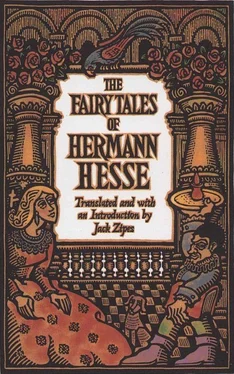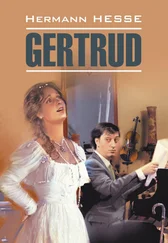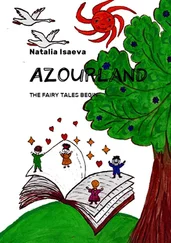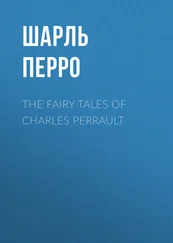Hermann Hesse - The Fairy Tales of Hermann Hesse
Здесь есть возможность читать онлайн «Hermann Hesse - The Fairy Tales of Hermann Hesse» весь текст электронной книги совершенно бесплатно (целиком полную версию без сокращений). В некоторых случаях можно слушать аудио, скачать через торрент в формате fb2 и присутствует краткое содержание. Год выпуска: 1995, ISBN: 1995, Издательство: Bantam Books, Жанр: Классическая проза, Сказка, на английском языке. Описание произведения, (предисловие) а так же отзывы посетителей доступны на портале библиотеки ЛибКат.
- Название:The Fairy Tales of Hermann Hesse
- Автор:
- Издательство:Bantam Books
- Жанр:
- Год:1995
- ISBN:9780553377767
- Рейтинг книги:5 / 5. Голосов: 1
-
Избранное:Добавить в избранное
- Отзывы:
-
Ваша оценка:
- 100
- 1
- 2
- 3
- 4
- 5
The Fairy Tales of Hermann Hesse: краткое содержание, описание и аннотация
Предлагаем к чтению аннотацию, описание, краткое содержание или предисловие (зависит от того, что написал сам автор книги «The Fairy Tales of Hermann Hesse»). Если вы не нашли необходимую информацию о книге — напишите в комментариях, мы постараемся отыскать её.
The Fairy Tales of Hermann Hesse — читать онлайн бесплатно полную книгу (весь текст) целиком
Ниже представлен текст книги, разбитый по страницам. Система сохранения места последней прочитанной страницы, позволяет с удобством читать онлайн бесплатно книгу «The Fairy Tales of Hermann Hesse», без необходимости каждый раз заново искать на чём Вы остановились. Поставьте закладку, и сможете в любой момент перейти на страницу, на которой закончили чтение.
Интервал:
Закладка:
Lady Agnes lived in the only house that bordered on the neglected castle park. It had previously been the dwelling place of the cavaliers who had served the different barons of the family. At one point, Lady Agnes’s father, who had been a forester, had received the house as a gift from the father of the present Baron because of some service he had performed. Lady Agnes had married young and had returned home as a young widow, and now, after her father’s death, she lived by herself in the solitary house with a maid and a blind aunt.
Lady Agnes wore simple but beautiful new clothes made of soft colors. Her face was narrow like that of a young girl, and her dark brown hair lay in thick plaits wound around her fine head. The Baron had been in love with her even before he cast out his wife in shame, and now he loved her again. He met her in the mornings in the woods and conducted her in the evenings in the boat across the stream to a hut made out of reeds in the marshes, where her smiling girls face lay on his beard, which had turned gray early, and her tender fingers played with his hard, gruesome hunter’s hand.
Lady Agnes went to church on every holiday, prayed, and gave alms to the beggars. She visited the poor old women in the village, gave them shoes, combed the hair of their grandchildren, helped them with their sewing, and left the mild glow of a young saint behind in their huts when she departed. All the men desired Lady Agnes, and whoever pleased her and came at the right hour was guaranteed a kiss on the lips after the hand kiss, and whoever was lucky enough to be handsome might even dare to climb through her window at night.
Everyone knew this, even the Baron, and nevertheless the beautiful lady went her way smiling with the innocent look of a girl who could not be touched by the wishes of men. Sometimes a new lover appeared, courted her assiduously like an unattainable beauty, indulged himself in blissful pride upon conquering her, and was puzzled when the other men just smiled and showed no envy.
Her house stood quietly on the edge of the dark park. Covered by ramblers, it was isolated, like a fairy-tale house in the woods, and she lived there and went in and out, fresh and tender like a rose on a summer morning, a pure glow on her childlike face and the thick plaits of hair tied in a wreath around her noble head. The poor old women blessed her and kissed her hands; the men greeted her with a deep bow and smirked afterward; the children ran to her and begged and let her stroke their cheeks.
“Why are you the way you are?” the Baron would sometimes ask her and threaten her with imploring eyes.
“Do you have any rightful claim to me?” she would ask, surprised, as she braided her deep brown hair.
Of all the men, Floribert the poet loved her the most. When he saw her, his heart pounded. When he heard something bad about her, he became despondent, shook his head, and refused to believe it. When the children talked about her, he would brighten up and listen as if he were hearing a song. His most beautiful fantasy occurred whenever he dreamed of Lady Agnes, Then he drew on everything he loved and considered beautiful — the west wind and the blue horizon and all the light meadows of spring. He envisioned her surrounded by all these things and placed all his longings and the vain fervor of his useless infantile life into this picture.
One early summer’s evening, after everything had been quiet for a long time, some new life came into the dead castle. A horn blared in the courtyard. A coach drove in and stopped with a clatter. The Baron’s brother had come to visit, with one servant. He was a large handsome man with a pointed beard and the wrathful eyes of a soldier. During his visit he swam in the rushing waters of the Rhine, shot at the silver sea gulls for pleasure, took frequent rides into the nearby city, and came home drunk. He teased the good poet at times and had loud arguments with his brother every few days. Indeed, he gave him advice about a thousand things. For instance, he proposed renovations and new additions to the castle and recommended changes and improvements. Of course, it was all very easy for him to talk, for he was rich, thanks to his marriage, while his brother, the Baron, was poor and had experienced mainly misfortune and trouble.
The brother’s visit to the castle had been a whim, and he regretted it during the very first week that he spent there. Nevertheless, he remained and said nothing about leaving, even though the Baron would not have minded it in the least. But now his brother had seen the Lady Agnes and was pursuing her.
It was not long before the maid of the beautiful Lady Agnes brought her a new dress, which the visitor at the castle had sent as a present. It was not long before the maid was taking letters and flowers from the visitor’s servant, near the wall of the park. And after only a few days had passed, the visitor met Lady Agnes in a forest hut at noon on a summer’s day and kissed her hand and her small mouth and her white neck. When she went into the village, however, and he encountered her there, he would take off his riding cap and salute her. In turn, she curtsied to him like a girl of seventeen.
One evening shortly thereafter, when the visitor was alone by the river, he saw a boat sail across the water carrying a rower and a luminous woman. What the curious man could not discern for certain in the dusk became clearer after a few days, and then he knew more than he wanted to know. The woman whom he had held passionately in his arms at noon in the forest hut and whom he had ignited with his kisses, was the same woman who sailed in the evening with his brother over the dark Rhine and disappeared with him behind the shore of reeds.
The visitor became gloomy and had awful dreams. He had not pursued and made love to Lady Agnes as if he were hunting a luscious piece of game; rather he had treated her like a precious discovery. With each kiss he had been surprised and overjoyed that so much tender innocence had succumbed to his wooing. That is why he had given her more than other women. She brought back his youth, and he embraced Lady Agnes with gratitude, consideration, and tenderness — the very same woman who went down dark paths with his brother at night. Now he bit into his beard, and his eyes were inflamed with anger.
Untouched by all that was happening and by the invisible tension mounting at the castle, the poet Floribert continued to spend his days in peace and calm. He was not pleased when the visitor teased and pestered him, although he was accustomed to such behavior from previous visits. So he avoided the Baron’s brother, spent entire days in the village or with the fishermen on the banks of the Rhine, and indulged himself with rambling fantasies in the fragrant warm evenings.

One morning Floribert noticed that the first tea roses were beginning to blossom along the wall of the castle. During the last three summers he had placed the first blossoms of these rare roses on the threshold of Lady Agnes’s house, and he was now happy that he would be able to bring her this modest and anonymous greeting for the fourth time.
At noon on this same day the Baron’s brother met with the beautiful lady in the birch woods. He did not ask her where she spent her evenings. He looked into her calm innocent eyes with a surprising glare that was almost cruel, and before he went away, he said, “I’m going to come to you this evening when it’s dark. Leave a window open!”
“Not tonight,” she said softly. “Not tonight.”
“But I want to.”
“Another time, all right? Not tonight. I can’t.”
“I’m coming tonight — tonight or never again. Do what you want.”
Читать дальшеИнтервал:
Закладка:
Похожие книги на «The Fairy Tales of Hermann Hesse»
Представляем Вашему вниманию похожие книги на «The Fairy Tales of Hermann Hesse» списком для выбора. Мы отобрали схожую по названию и смыслу литературу в надежде предоставить читателям больше вариантов отыскать новые, интересные, ещё непрочитанные произведения.
Обсуждение, отзывы о книге «The Fairy Tales of Hermann Hesse» и просто собственные мнения читателей. Оставьте ваши комментарии, напишите, что Вы думаете о произведении, его смысле или главных героях. Укажите что конкретно понравилось, а что нет, и почему Вы так считаете.












